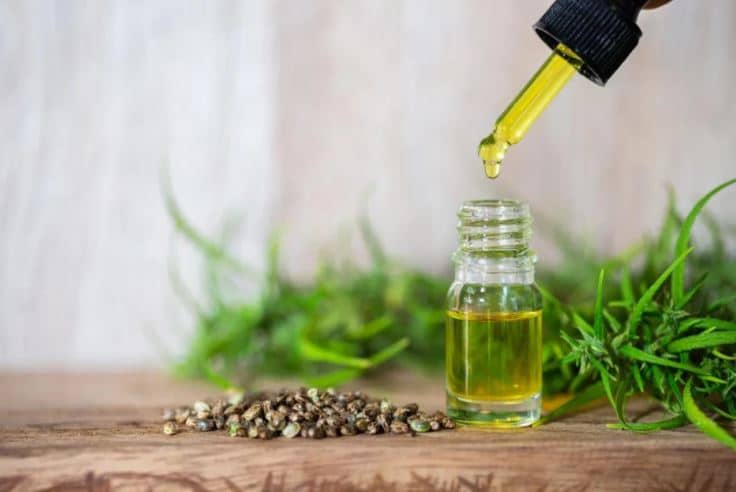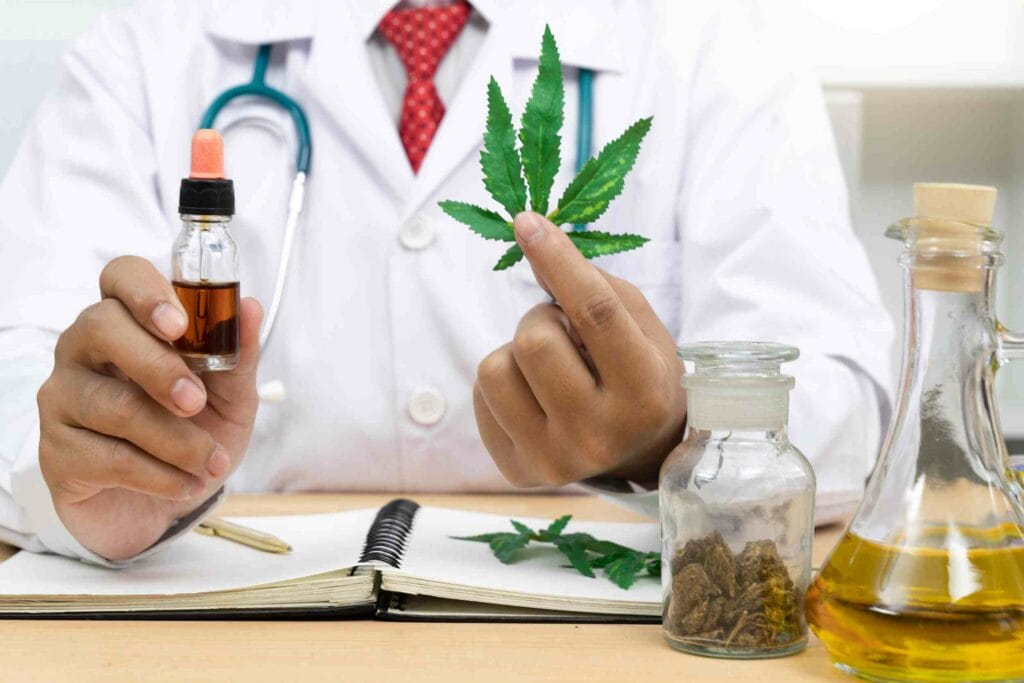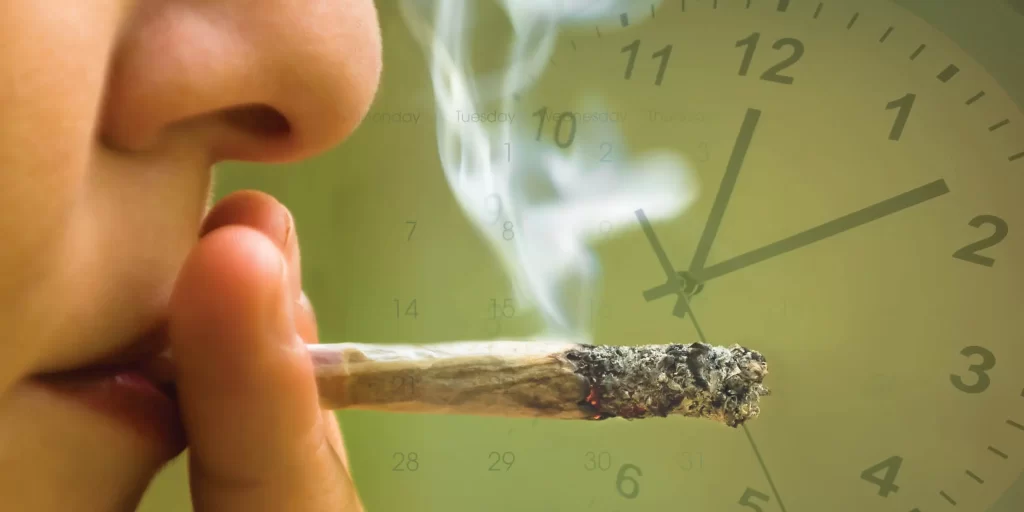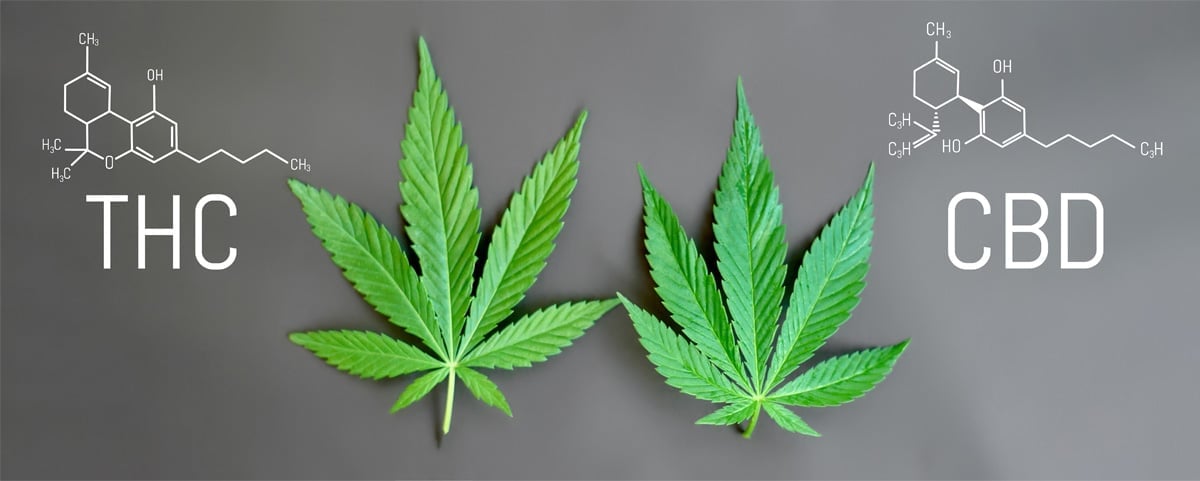What is THC? Tetrahydrocannabinol explained
In this article, we explain Tetrahydrocannabinol. Tetrahydrocannabinol is better known by its abbreviated name THC. The Cannabis sativa plant manufactures and secretes a resin, primarily through glands called trichomes. This resin contains many compounds. In and around the plant’s flowers, you can find a concentration of trichomes. Here, they are more abundant than in any other area, with one of the most plentiful being called cannabinoids.
Table of contents on THC and Tetrahydrocannabinol
What is THC or Tetrahydrocannabinol?
Tetrahydrocannabinol is also called dronabinol. Raphael Mechoulam, Yechiel Goani, and Habib Edery first isolated it. All came from the Weizmann Institute in Rehovot, Israel, in 1964. THC has very low solubility in water in its pure form. However, it has good solubility in most organic solvents and oils. When cold, THC is a glassy solid. However, THC becomes viscous and sticky when warmed. THC is mainly metabolized to 11-OH-THC (11-hydroxy-THC) by the human body with metabolization occurring in the liver. There, Tetrahydrocannabinol is processed by cytochrome P450 enzymes CYP2C9, CYP2C19, and CYP3A4. These metabolites are still psychoactive and are further oxidized to 11-nor-9-carboxy-THC (THC-COOH). In humans and animals. More than 100 metabolites have so far been identified. 11-OH-THC and THC-COOH are the primary ones.
How THC affects the body?
In this article, we explain what THC is and how it affects the body. Tetrahydrocannabinol is commonly known by its abbreviation THC. Tetrahydrocannabinol is defined by what cannabis makes you feel, and we will explore the psychological and physiological effects.
THC vs. CBD: How are they different?
CBD, or Cannabidiol, is another cannabinoid found in abundance in the Cannabis plant. Cannabidiol and THC share a very similar chemical composition. However, there is one slight difference in their atomic arrangements. Both THC and CBD are considered cyclic compounds. One or more of the atoms in the compounds connect to form a ring. So, while CBD has an open ring, Tetrahydrocannabinol has a closed ring. This minor arrangement difference causes them to interact with our endocannabinoid systems differently.

Psych activity of THC vs CBD
THC and CBD have very similar molecular structures. However, they do have very different psychological and physiological effects. Tetrahydrocannabinol is defined by what cannabis makes you feel. On the other hand, the effects of CBD are represented by what you can’t feel. This is because THC gets you ‘high’ while CBD won’t. The reason for this is the different ways THC and CBD interact with our bodies. CB1 and CBD 2 receptors are two components of our endocannabinoid system. This is the body’s unique system that regulates homeostasis. Controlling sleep, stress, as well as our immune system.
THC is the component that gets you high
The “high” associated with THC is caused due to its strong binding affinity with cannabinoid receptors. In particular with the cannabinoid receptor 1 (CB1 receptors). This is because Tetrahydrocannabinol starts its intoxicating and psychedelic effects via the CB1 receptors. Those are found mainly in the central nervous system and the brain. When CB1 receptors are activated, cells in the brain are stimulated to release dopamine. Thereby, THC’s characteristic intoxicating effects are produced, including:
- Creating euphoria and elation
- Interfering with how information is processed in the hippocampus
- The formation of new memories and short-term memory recall issues
- Psychomotor impairment
- Anxiety and tachycardia
- Sedation and relaxation
- Pain-relief
- In cases of severe intoxication, inducing hallucinations, changes in thinking, and delusions
CBD, however, does not create a “High”
CBD has no binding affinity with the CB1 receptors, unlike Tetrahydrocannabinol. Therefore, CBD has no intoxicating effect on your perception or sensory experiences. When CBD is taken with THC, Research also suggests it can block the “high” associated with THC. This is possible because it suppresses Tetrahydrocannabinol’s CB1-activating qualities and protects you from getting too high.
The concentration of THC in Cannabis & Hemp
Both THC and CBD are present in the Cannabis sativa plant. However, to differing degrees. CBD is the dominant cannabinoid found in the hemp plant. Hemp plants contain only small amounts of Tetrahydrocannabinol (<1%). On the other hand, THC is found most abundantly in different species of Cannabis. Those species are bred in the first place to maximize the THC content to produce more powerful intoxicating effects.
The concentration of Tetrahydrocannabinol in Cannabis refers to its potency. This explains the amount of THC in a Cannabis flower or product. THC potency can be expressed in milligrams of Tetrahydrocannabinol per gram of product (mg/g). Another way would be as a percentage of milligrams of THC per gram of Cannabis.
So, for example, if your product is labeled as containing:
15 mg/g = 15 mg of THC per 1 gram of product or 15% Tetrahydrocannabinol and 150 mg/g = 150 mg of THC per 1 gram of product
Dried flower Cannabis with 100% THC content is impossible. However, Cannabis extracts (which have been distilled) can contain up to 90% THC. As a natural product, of course, the Tetrahydrocannabinol content in a dried flower Cannabis product may vary from product to product. It will even vary between different lots of the same strain.
Research on THC effects and medical benefits
Cannabis has a long history of being used for medicinal purposes. Archaeological records for this stretch back as far as 3,000 years. In recent years, the scientific and medical community have also increased their research into the benefits of medical Cannabis. Data from several studies show that it has great potential for helping patients treat and manage a range of symptoms and diseases.
Usage of Tetrahydrocannabinol (medical conditions)
THC has various therapeutic properties. There is a growing, substantial body of evidence showing that. Although opinions and results vary. There is, for example, significant evidence for the therapeutic effects of medical Marijuana. Those effects relate to its ability to reduce chronic pain, nausea, as well as vomiting caused by chemotherapy. Furthermore, evidence shows strong, positive THC effects against spasticity from MS. Other conditions for which Tetrahydrocannabinol shows great promise include:
- Alzheimer’s disease
- Appetite loss and eating disorders such as anorexia
- Cancer and controlling tumor growth
- Crohn’s disease
- Glaucoma
- Mental health conditions like post-traumatic stress disorder (PTSD)
- Multiple Sclerosis
- Wasting syndrome (cachexia)

Tetrahydrocannabinol risks and side effects
The effects of THC and Cannabis make it a popular recreational drug. But also a natural and safe therapeutic supplement. However, as with anything you consume, even though it’s natural and generally safe, there may be risks and side effects. Under certain circumstances, Cannabis use can have some serious risks and side effects. The most severe adverse effects of short-term, long-term, or heavy Cannabis use include things like:
THC effects of short-term use
- Impaired motor coordination that can interfere with driving skills or an increased risk of injury
- The altered judgment can increase dangerous risk behaviors
- In high doses, paranoia, and psychosis can occur
- Harmful drug interactions when used with other drugs or medications
Tetrahydrocannabinol effects of a long-term or heavy use
- Symptoms of chronic bronchitis
- Increased risk of chronic psychosis disorders (including schizophrenia) in persons with a predisposition to such disorders
- Addiction occurs in about 9% of users overall. It occurs in 17% of those who begin use in adolescence. Among daily users, addiction rates of 25% – 50% occur.
- Altered brain development can occur when exposed to Tetrahydrocannabinol during the prenatal period. Also when exposed during childhood or adolescence until the age of approximately 21 years.
- Adolescent consumption can lead to poor educational outcomes, as well as an increased likelihood of dropping out of school.
- Cognitive impairment, with lower IQ among those who were frequent users during adolescence.
However, when Cannabis is responsibly consumed by adults and in moderation, it is usually very safe to use. In fact, to date, there is not a single documented case of a Cannabis overdose anywhere. Nevertheless, just like any other mind-altering drug, Cannabis can interfere with your cognitive and motor function. This effect can put you in dangerous situations. So stay safe, stay home, and make sure you enjoy your Cannabis with people you can trust.
How long does Tetrahydrocannabinol or THC stay in your body?
Although the effects of THC tend to be relatively short-lived, the time its metabolites stay in your body can last for weeks or months. How long exactly is dependent on things like your body fat index, and how often you consume cannabis. Generally, you can expect THC metabolites to stay:
- In your blood for ± 3-4 hours
- and in your urine for ± 3–30 days
- In your saliva for ± 24 to 72 hours
- the longest in your hair for ± 90 days
For more information, you can read our article on THC & Drug testing: How long does weed (Cannabis) stay in your system and body?

Legality of Tetrahydrocannabinol
In most European countries, the legal limit for THC content is 0.3% for Hemp-derived CBD oil and products only. In Switzerland, Cannabis products are allowed to have five times the Tetrahydrocannabinol (THC) content. Which is substantially more than that permitted by EU countries. Any Swiss CBD Cannabis product is 100% legal to buy, possess, and consume in Switzerland as long as it contains 1% THC or less. Furthermore, anything with more than 1% Tetrahydrocannabinol content can be prescribed by a doctor. This is under the approval of the Swiss Federal Office of Public Health. In the United States, several states have legalized Cannabis consumption. However, the use, sale, and possession of cannabis over 0.3 percent THC are still illegal under federal law under the Controlled Substance Act. Although, the Food and Drug Administration has approved the use of Epidiolex, a CBD-based medicine, for use in certain epileptic conditions.


